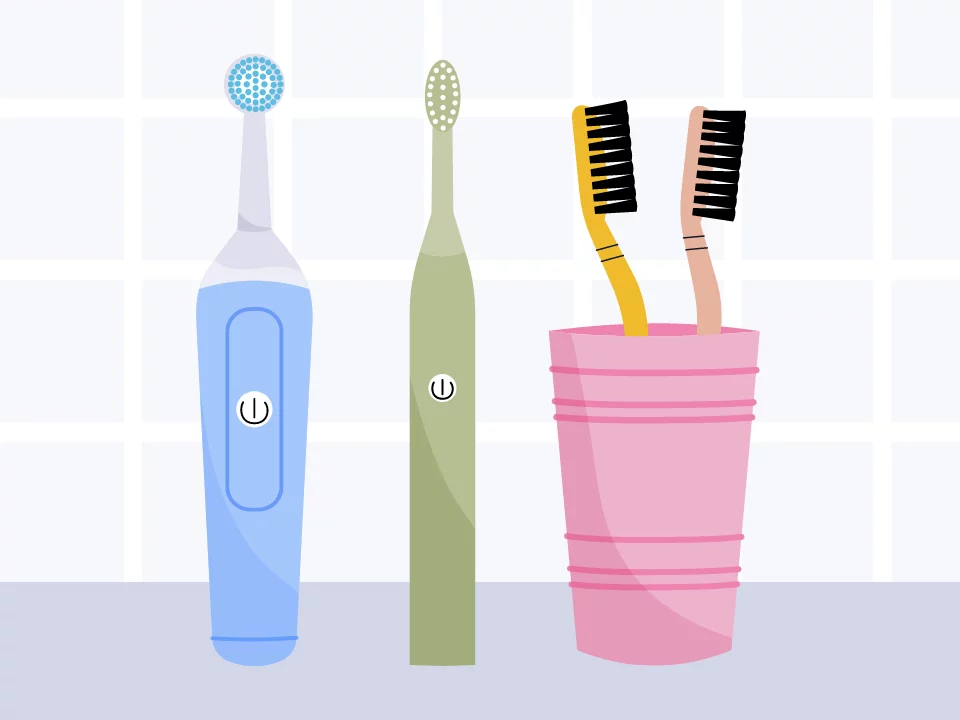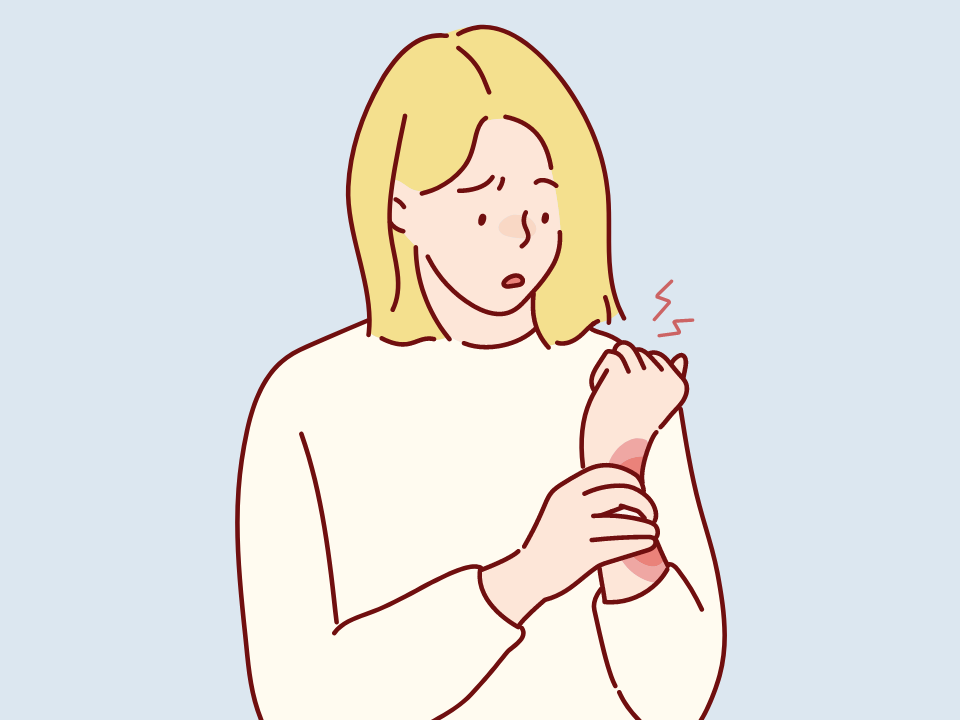Brushing your teeth at least twice a day is a frequently touted method of maintaining healthy teeth. While the need for brushing will never go away, the toothbrush itself has seen many changes. Simple manual toothbrushes and an array of electric toothbrushes exist on store shelves alongside each other, giving brushers a choice to make. By analyzing the pros and cons of using an electric versus manual toothbrush, you will be able to decide which type is best for your mouth.
The purpose of brushing your teeth is to clean your mouth of foods, plaque, and bacteria to protect your tooth enamel. When the enamel is damaged, cavities and cracks can further weaken the enamel and allow bacteria to get into the pulp of the tooth and cause pain and infection. Plaque, a sticky substance that accumulates on teeth that can harbor bacteria, leads to numerous damaging effects in the mouth such as cavities, tooth loss, and gum disease.
Is It Better to Use an Electric or a Manual Toothbrush?
Like with every product, there are pros and cons to using an electric toothbrush. However, substantial evidence suggests that regular use of an electric toothbrush benefits your overall oral health. Study after study point to the fact that electric toothbrushes remove significantly more plaque from teeth than their manual counterparts. Brushing away food and plaque is the number one function of any toothbrush and is greatly needed in keeping teeth and mouths healthy.
When teeth go un-brushed, plaque can build up and harden into calculus that can allow bacteria to thrive. When teeth have constant colonies of bacteria and plaque on them, gum disease, like gingivitis, can worsen into periodontitis, resulting in receding gums and even tooth and bone loss. Both types of toothbrushes can clean teeth well if you are consistent in using them. Though the human factor can not be avoided, whichever toothbrush you find yourself more likely to use may be what gives one toothbrush a bigger advantage over the other.
How often should you use an electric toothbrush?
Do electric toothbrushes cause gum recession?
Actually, quite the opposite is true if you already suffer from some gum recession. If you have receding gums from gum disease in the past, an electric toothbrush will be gentle on your gums so the receding does not get worse as can be the case with abrasive, manual brushing.
Are electric toothbrushes damaging to teeth?
What are the Pros of An Electric Toothbrush?
- A built-in timer. This may seem like a small feature, but the amount of time people spend brushing their teeth has a large effect on their oral health. An electric toothbrush can have several alerts to inform you it is time to move on to a new section of teeth and will often shut off by itself after two minutes, which is the appropriate length of time to brush.
- User friendly. Don't know how to use an electric toothbrush? It's as simple as pushing a button. An electric toothbrush is easy to use and can be especially beneficial for those who have limited mobility where moving their hands and arms could be difficult or cause pain.
- Cleans braces. When you have a mouth full of metal orthodontic braces, keeping your teeth clean is a bigger deal and can be much more difficult. A study suggests that those wearing braces with poor oral hygiene can see a significant reduction of plaque when using an electric toothbrush versus a manual toothbrush.
Are electric toothbrushes actually better for you?
When deciding if you should make the switch to an electric toothbrush, consider what your oral hygiene is like currently and if you need a boost to make it better. Then you decide which type of toothbrush you are more likely to use. A manual toothbrush, when used properly, can get the job done. If you keep your regular dentist appointments and your dentist is satisfied with your teeth’s condition, sticking with what is already working is a good idea. But if you find yourself rushing through brushing your teeth or if your dentist comments on the amount of plaque building up between appointments, the benefits of using an electric toothbrush will significantly improve the health of your mouth.
What are the Cons of An Electric Toothbrush?
- Expensive. This is the number one disadvantage to electric toothbrushes because cost plays an important role in how likely people will use them. With an electric toothbrush, new toothbrush head replacements must also be purchased and may be difficult to find.
- Not everyone likes the feeling. The feeling of the electric toothbrush can be off-putting for some individuals. If the electric toothbrush has different settings, start off using it on the lowest setting to get used to the vibrations against your gums. This tickling feeling may cause some to reject the use of electric toothbrushes altogether.
What are the Pros of A Manual Toothbrush?
- Availability. They are readily available at the drug store or grocery store, and there are inexpensive options.
- Simplicity. They require no electricity, additional parts, or chargers in order to keep your teeth clean.
What are the Cons of A Manual Toothbrush?
- Brushing too hard. When you want your teeth clean, you may be tempted to press the bristles harder against your teeth and may use too much force in the brushing motion. If you have slightly receding gums from gingivitis, slamming the bristles down on the gums can cause the gums to be pushed back further.
- Not brushing long enough. To properly clean your teeth, it is recommended that you brush for a full two minutes. You may need to watch the clock or set a timer on your phone to give your teeth the time they need to be fully cleaned.
When to Replace Your Toothbrush
Find the Right Brush for You
Clearly, brushing is better than not brushing. Deciding on a toothbrush that helps you brush regularly and keeps you brushing for the appropriate amount of time will boost your overall oral hygiene. Making the switch to an electric toothbrush may be the best decision for your oral health. Brushing consistently, flossing once a day, and keeping annual dental appointments will keep your teeth and gums clean and healthy. To find a local Smile Generation trusted dental office near you, click on the Find a Dentist tool so you can set up an appointment and be on your way to an overall healthy mouth.
Find your trusted, local dentist today!
Sources
Heintze, S. D, P. G. Jost-Brinkmann, J. Loundos . "Effectiveness of Three Different Types of Electric Toothbrushes Compared with a Manual Technique in Orthodontic Patients." NIH, Dec. 1996, https://pubmed.ncbi.nlm.nih.gov/8972810/
Ikawa ,Takahiro, Koji Mizutani, Takeaki Sudo, Chihiro Kano, Yuichi Ikeda, Tatsuya Akizuki, Hiroaki Kobayashi, Yuichi Izumi, Takanori Iwata. "Clinical Comparison of an Electric-powered Ionic Toothbrush and a Manual Toothbrush in Plaque Reduction: A Randomized Clinical Trial." NIH, 1 Nov. 2020, https://pubmed.ncbi.nlm.nih.gov/33029896/
"Plaque." 5 May 2022, https://www.mouthhealthy.org/en/az-topics/p/plaque
Yaacob, M., Helen V. Worthington, Scott A. Deacon, Chis Deery, Anthony D. Whalmsley, Peter G. Robinson, Anne-Marie Glenny. "Powered/Electric Toothbrushes Compared to Manual Toothbrushes for Maintaining Oral Health." Cochrane, 17 June 2014, https://www.cochrane.org/CD002281/ORAL_poweredelectric-toothbrushes-compared-to-manual-toothbrushes-for-maintaining-oral-health
Smile Generation blog articles are reviewed by a licensed dental professional before publishing. However, we present this information for educational purposes only with the intent to promote readers’ understanding of oral health and oral healthcare treatment options and technology. We do not intend for our blog content to substitute for professional dental care and clinical advice, diagnosis, or treatment planning provided by a licensed dental professional. Smile Generation always recommends seeking the advice of a dentist, physician, or other licensed healthcare professional for a dental or medical condition or treatment.








